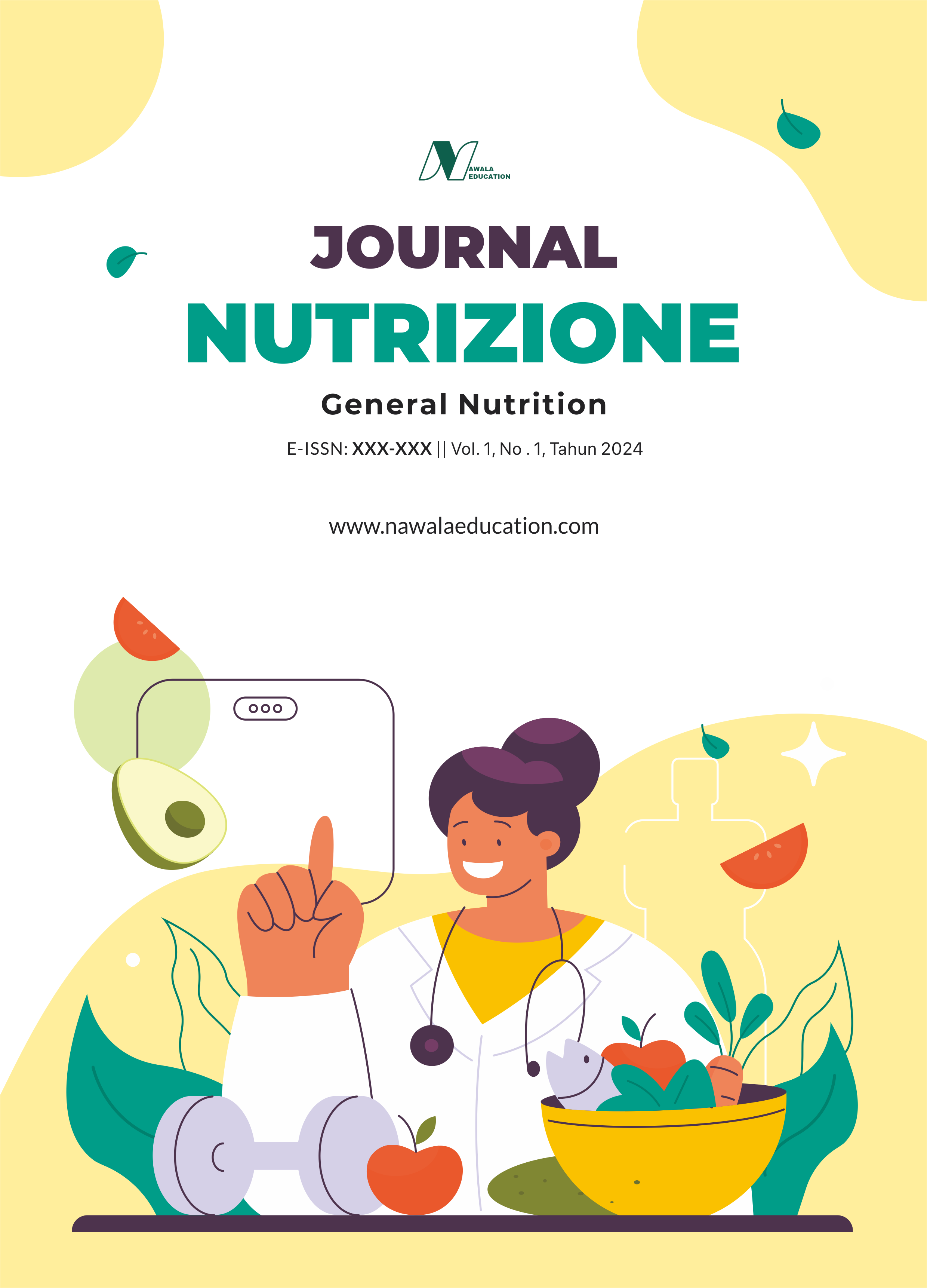The Role of Digital Technology in Improving Nutrition Education for Millennials and Generation Z
DOI:
https://doi.org/10.62872/s85wek63Keywords:
Nutrition Education, Millennial and Z Generation, Nutrition Personalization, Digital TechnologyAbstract
Digital technology has brought about a revolution in personalized nutrition for Millennials and Z generations, who increasingly rely on artificial intelligence (AI)-based apps for dietary recommendations tailored to individual needs. These apps analyze personal data such as weight, height, physical activity and food preferences to provide more relevant advice. Devices such as smartwatches also help track diet and healthy living habits. However, challenges related to data privacy and security are still major issues that require strict regulation. On the other hand, digital technology is also expanding access to nutrition education through more interactive e-learning platforms, webinars and digital modules, enabling more enjoyable and effective learning. In addition, online communities that support healthy lifestyles are growing in popularity, providing motivation and useful information. Gamification approaches in nutrition education also help encourage active participation with diet challenges and virtual rewards. However, the digital divide in remote areas remains a major obstacle in ensuring equitable access. This research aims to explore the role of digital technology in improving nutrition awareness among the younger generation, using a qualitative approach through phenomenological and case study studies. The findings are expected to provide insights into the potential and challenges of using technology in nutrition education as well as recommendations for more inclusive and safe development
Downloads
References
AM, A. M. A., Achmad, V. S., Syarif, I., Jukarnain, J., & Supriatin, T. (2023). Self Efficacy of Self-Care Adherence in People with Hypertension. Jurnal Ilmiah Kesehatan Sandi Husada, 12(1), 216-223.
Angraeni, D. (2023). EDUKASI GIZI BERBASIS TEKNOLOGI: SOLUSI BARU DALAM PENANGANAN DIABETES MELLITUS PADA PESERTA PROLANIS. Locus Penelitian dan Abdimas, 2(2).
Azhar, A. A., Hadiwijoyo, S. S., & Nau, N. U. W. (2023). Peran Multi-Aktor dalam Mewujudkan Ketahanan Pangan Nasional Melalui Pengelolaan Food Loss and Waste di Indonesia. Jurnal Ilmiah Multidisiplin, 2(04), 56-74.
Bohari, B. (2023). Pelatihan Secara Online tentang Scientific Skill Training (SST) Bagi Mahasiswa Gizi. Jurnal Abmas Negeri (JAGRI), 4(1), 38-44.
Farran A, J. (2024). Pengembangan Sistem Informasi Berbasis AI untuk Perhitungan Kalori dan Rekomendasi Kesehatan Personal menggunakan Openai (Doctoral dissertation, Universitas Islam Indonesia).
Hariyanti, N., Salim, M., & Nabilah, R. Z. G. (2021). Level Literasi Digital Peserta Kelas Whatsapp Group Klinik MPASI. Jurnal Komunikasi, 15(2), 109-124.
Harjana, N. P. A. (2022). E-Imuno: Aplikasi Catatan Imunisasi Digital Berbasiskan Kartu Identitas Anak (KIA) di. Kumpulan Karya Esai Juara, 1, 121.
Jayanthi, R., & Dinaseviani, A. (2022). Kesenjangan digital dan solusi yang diterapkan di Indonesia selama pandemi COVID-19. JURNAL IPTEKKOM Jurnal Ilmu Pengetahuan & Teknologi Informasi, 24(2), 187-200.
Limketkai, B. N., Mauldin, K., Manitius, N., Jalilian, L., & Salonen, B. R. (2021). The age of artificial intelligence: use of digital technology in clinical nutrition. Current surgery reports, 9(7), 20.
Machfudzi, A. (2021). Perancangan Komunikasi Visual Edukasi Kesehatan Gigi dan Mulut untuk Anak melalui Permainan Papan (Doctoral dissertation, ISI Yogyakarta).
Mattes, R. D., Rowe, S. B., Ohlhorst, S. D., Brown, A. W., Hoffman, D. J., Liska, D. J., ... & Jackson, E. (2022). Valuing the diversity of research methods to advance nutrition science. Advances in Nutrition, 13(4), 1324-1393.
Maulaya, F., Fadilah, U. F., Virasuli, Z., Murivina, M., & Karim, A. (2024). Menuju Masyarakat Sehat dan Berdaya: Pendekatan Terpadu dalam Meningkatkan Pengetahuan Kesehatan, Kesadaran Spiritual dan Jaringan Sosial. Masyarakat Berkarya: Jurnal Pengabdian dan Perubahan Sosial, 1(4), 35-52.
Mukhtafi, J., Nauha, U. N., Riona, V., & Saputra, Y. M. (2023). Penerapan Design Thinking Untuk Pengembangan Nutrisiku: Aplikasi Manajemen Pemenuhan Nutrisi Ibu dan Anak Berbasis Artificial Intelligence. Buletin Pagelaran Mahasiswa Nasional Bidang Teknologi Informasi dan Komunikasi, 1(1), 11-15.
Mulyani, E. Y., Anwar, N., & Elvandari, M. (2020). Peningkatan Pengetahuan Mahasiswa Melalui Edukasi Online Gizi dan Imunitas Saat Pandemic Covid-19. Senada: Semangat Nasional Dalam Mengabdi, 1(1), 70-78.
Ningsih, D. P. S., siska Mutiara, V., Oktarina, M., & Rahmawati, I. (2022). Komunitas Daring Literasi Kesehatan Indonesia (LEKSIA) Sebagai Sarana Tular Nalar di Masa Pandemi COVID-19. Jurnal Ilmu Komunikasi, 20(2), 134-150.
Pohan, M. A. R. (2023). Kajian Literatur Pemanfaatan Kecerdasan Buatan dalam Merespons Prioritas Pembangunan Kota Bandung. Jurnal Teknologi dan Komunikasi Pemerintahan, 5(2), 250-273.
Sarjito, A. (2024). Hoaks, Disinformasi, dan Ketahanan Nasional: Ancaman Teknologi Informasi dalam Masyarakat Digital Indonesia. Journal of Governance and Local Politics (JGLP), 6(2), 175-186.
Syaifullah, H., & David, W. (2021). Rencana Bisnis Fitur Monitoring Real-Time Coaching dengan Suara pada Smartband. Journal of Entrepreneurship, Management and Industry (JEMI), 4(4), 213-230.
Widyastuti, W., Iskandar, B. O., Zen, Y., & Sahelangi, O. (2023). Pelatihan Pola Makan Sehat Keluarga kepada Komunitas Theresia Lisieux, Apartemen Mediterania 1, Jakarta Barat, Kelurahan Tanjung Duren, Kecamatan Grogol Petamburan, Jakarta Barat. JURNAL ABDIMAS KESEHATAN TERPADU, 2(2)..
Downloads
Published
Issue
Section
License
Copyright (c) 2024 Andi nursiah (Author)

This work is licensed under a Creative Commons Attribution-ShareAlike 4.0 International License.

This work is licensed under a Creative Commons Attribution-ShareAlike 4.0 International License.












